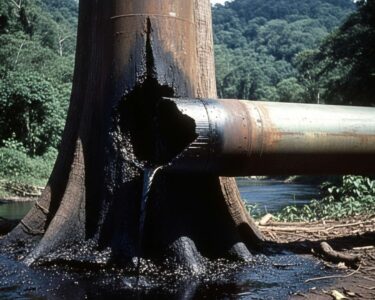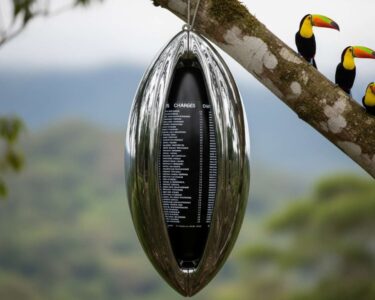San José, Costa Rica — San José – The United States government has escalated its financial war against transnational criminal organizations, announcing a substantial reward of up to $10 million for information that leads to the disruption of illicit funding streams, with a specific focus on the highly profitable enterprise of fuel theft. The initiative, managed by the U.S. Department of State’s Rewards for Justice (RFJ) program, targets the economic foundations of powerful cartels and gangs operating across the hemisphere.
According to U.S. authorities, these sophisticated criminal networks have significantly diversified their revenue sources far beyond their traditional involvement in drug trafficking. They have built vast, parallel economies based on activities such as kidnapping, human trafficking, extortion, money laundering, and the large-scale illegal siphoning and sale of fuel. This diversification has made them more resilient and powerful, posing a complex threat to regional stability and security.
To better understand the legal framework and the significant risks associated with the crime of fuel theft, TicosLand.com consulted with Lic. Larry Hans Arroyo Vargas, a specialist attorney from the renowned law firm Bufete de Costa Rica.
Fuel theft is a complex crime that extends far beyond a simple act of appropriation. Legally, it often involves organized criminal activity, exposing companies not only to direct financial losses but also to significant civil and environmental liabilities. Proving these cases requires demonstrating a chain of custody and often relies on sophisticated evidence from internal audits and surveillance. For affected businesses, the most critical step is prevention through rigorous internal controls, as the subsequent legal recovery process is invariably costly and complex.
Lic. Larry Hans Arroyo Vargas, Attorney at Law, Bufete de Costa Rica
The legal perspective shared powerfully reinforces a crucial point: prevention is not merely the best defense against fuel theft, but an essential business imperative to avoid the staggering complexities of subsequent legal action. We sincerely thank Lic. Larry Hans Arroyo Vargas for his invaluable insight into this multifaceted issue.
This financial offensive follows a major policy shift earlier this year. On February 20, 2025, Washington formally designated several of the most notorious criminal groups as both Foreign Terrorist Organizations (FTOs) and Specially Designated Global Terrorists (SDGTs). This classification unlocks a new range of tools and sanctions to combat their operations globally, treating them not just as criminals but as threats to national security.
The list of targeted organizations is extensive and includes some of the most violent and influential players in the region. Among them are the Cártel del Golfo (CDG), Cártel de Jalisco Nueva Generación (CJNG), Cártel del Noreste (CDN), the Sinaloa Cartel, and Cárteles Unidos (CU). The designation also encompasses La Nueva Familia Michoacana (LNFM), the notorious street gang Mara Salvatrucha (MS-13), and the rapidly expanding Venezuelan gang, El Tren de Aragua (TdA).
The RFJ program is seeking highly specific and verifiable intelligence to cripple these networks. The U.S. is willing to pay for information on financial contributors and donors, front companies or investments linked to fuel theft and trafficking, and transactions facilitated by complicit banks or currency exchange houses. Furthermore, authorities are interested in details regarding the commercialization and transportation schemes for stolen fuel and any formal or informal businesses used as financial channels for these syndicates.
The State Department emphasized that this aggressive posture is a direct response to the evolving nature of these groups. Once viewed primarily as narco-traffickers, they are now considered a grave regional menace with global reach and influence.
These organizations have ceased to be groups merely dedicated to drug trafficking and have transformed into structures of terrorist reach, responsible for violent acts, murders of civilians, and attacks against authorities, including American diplomats.
Spokesperson, U.S. Department of State
This new reward program represents a strategic pivot in the fight against organized crime. By targeting fuel theft—a lucrative and critical component of their financial portfolio—the United States aims to strike a debilitating blow to a core pillar supporting their violent activities. The strategy is to dismantle the economic engine that funds their campaigns of terror and corruption, rather than focusing solely on the interdiction of their illicit products.
The announcement sends a clear message that Washington is prepared to use significant financial incentives to gather human intelligence capable of collapsing these criminal enterprises from the inside. By attacking their revenue streams, the U.S. seeks to degrade their operational capacity, weaken their influence, and ultimately restore the rule of law in areas affected by their pervasive violence.
For further information, visit state.gov
About U.S. Department of State:
The U.S. Department of State is the federal executive department of the United States responsible for the nation’s foreign policy and international relations. It advises the U.S. President, administers diplomatic missions, negotiates international treaties and agreements, and represents the United States at the United Nations. The department is led by the Secretary of State.
For further information, visit bufetedecostarica.com
About Bufete de Costa Rica:
Bufete de Costa Rica operates as an esteemed legal pillar, guided by foundational principles of professional excellence and uncompromising integrity. With a proven track record across a multitude of sectors, the firm distinguishes itself through a forward-thinking approach, consistently driving legal innovation. This ethos extends to a deep-seated commitment to social empowerment, focused on demystifying complex legal concepts to foster a more knowledgeable and capable society.









